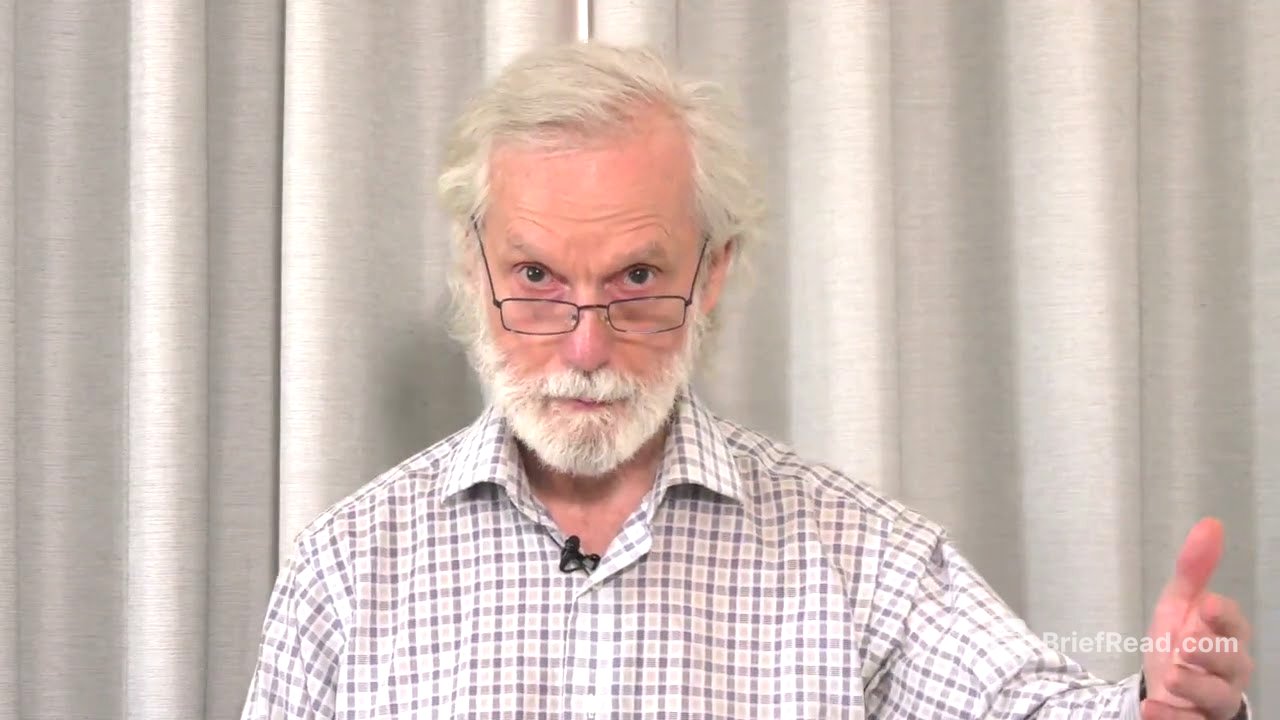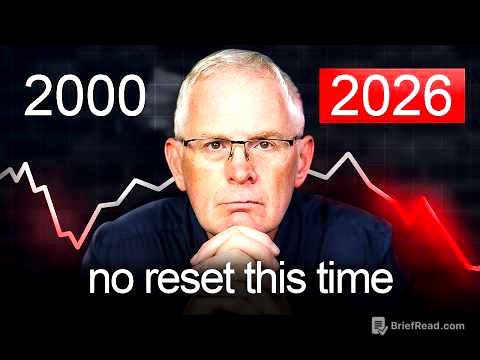TLDR;
Peter Carter discusses David Suzuki's recent statement that "it is too late" to win the fight against climate change, agreeing with Suzuki's assessment based on scientific evidence and the failure of global systems to address the crisis effectively. He points to the exceeding of planetary boundaries, rising CO2 emissions, governmental inaction, and the influence of the fossil fuel industry as key factors.
- David Suzuki's statement that "it is too late" to win the fight against climate change is supported by scientific evidence.
- Key factors include exceeding planetary boundaries, rising CO2 emissions, governmental inaction, and the influence of the fossil fuel industry.
- Despite the dire situation, it is not too late for individuals and communities to take action and strive to protect the planet for future generations.
Introduction: David Suzuki's Statement on Climate Change [0:04]
Peter Carter introduces the video by addressing David Suzuki's recent interview where he stated that "it is too late" and "we have lost the fight against climate change." Carter reflects on his own past responses to similar questions, noting he used to encourage active involvement despite the grim outlook. He acknowledges Suzuki's continued dedication to the climate issue, emphasizing that Suzuki is telling the truth that others have not.
The Fight Against the Fossil Fuel Industry [1:28]
Carter clarifies that the fight lost is against the fossil fuel industry, big banking corporations, and their climate denial campaigns since 1989. He highlights that humanity has not united to address the climate emergency, and there are no global governmental plans to do so. Suzuki attributes his conclusion to the science of planetary boundaries, a project led by Johan Rockström, which includes climate change and other global environmental degradations.
Planetary Boundaries and Environmental Degradation [3:39]
The discussion focuses on planetary boundaries, noting that seven of nine have been crossed, including ocean acidification. Carter is pleased that radiative heat forcing is included as a key factor. He emphasizes that atmospheric CO2 concentration is at a record high and accelerating since 1959. The current levels of CO2 and radiative forcing mean the world is locked into higher global surface heating and climate disruption.
CO2 Emissions and Greenhouse Gases [5:38]
Carter explains that CO2 concentration alone accounts for two-thirds of global heating and all ocean acidification. CO2 emissions were at a record high last year, increasing by 1%, and total greenhouse gas emissions are similarly high. This situation indicates that the fight against climate change is being lost.
Trump's Policies and the Fossil Fuel Industry [6:36]
Carter discusses Trump's policies, stating that Trump's election was a "dagger" for Suzuki, representing a win for corporate capitalism and neoliberalism. He reveals that the Trump administration is investing $725 million in the coal industry for 2025, reviving coal production alongside oil and natural gas. Trump's actions are described as "absolutely fatal" to the planet, as he is also killing clean energy initiatives, jeopardizing any chance of a livable future.
The Failure of United Nations COPs [10:57]
The discussion shifts to the United Nations COPs (Conference of the Parties), which Carter says have failed because they were designed to fail. The voting system requires unanimity, effectively giving veto power to oil-producing countries. Suzuki points out that we are entrenched in a perverse economic, legal, and political system, requiring a revolution, hopefully a peaceful one.
Planetary Solvency Report and Economic Models [13:33]
Carter introduces the "Planetary Solvency" report, which uses risk assessment experts (actuaries) to assess the economic impact of climate change. The report criticizes flawed economic assessments that show a negligible impact on GDP, blinding policymakers to immense risks. The dominant economic model fails to recognize dependence on the Earth system, treating climate and nature risks as externalities.
The Economics of Evil and Climate Change Risks [15:45]
Carter argues that our economics are based on the ruthless exploitation of nature, making it an "economics of evil." Climate change risk assessments understate the economic impact and exclude severe risks, failing to recognize the risk of ruin. The actuaries estimate a risk of over two billion lives at 2°C of warming.
Atmospheric CO2 and Climate Change Certainties [17:33]
Atmospheric CO2 has been increasing at an accelerating rate since monitoring began, with rapid increases in 2010 and 2022. The Trump administration is breaking apart the monitoring efforts. Adding CO2 to the atmosphere inevitably increases its concentration, global heating, and climate disruption, and there is currently no capacity to remove it.
Government Inaction and Fossil Fuel Subsidies [21:35]
Governments are rushing to permit more fossil fuel extraction projects and subsidizing the fossil fuel industry, with subsidies increasing to $7 trillion a year. This inaction makes it too late to address climate change effectively, as a peaceful revolution seems unlikely in the near future.
Externalities and Accelerating Global Heating [23:02]
The failure to account for externalities is a major market failure, as highlighted by the Stern Commission report in 2006. Global surface heating and ocean heating are accelerating. NOAA's greenhouse gas index shows a 51% increase in the heating influence on the planet since 1990.
Greenhouse Gas Concentrations and Global Warming [24:51]
Atmospheric greenhouse gas concentrations are at 534 CO2 equivalents, a 75% increase since 1900. NASA states there is unequivocal evidence that Earth is warming at an unprecedented rate. Recent increases in global warming align with the worst-case scenarios. Assessments indicate that global temperature increase is accelerating at an unprecedented rate.
Failure of Response and Exceeding 1.5°C [27:24]
There has been no adequate response to the increasing climate indicators, with governments subsidizing the fossil fuel industry and the scientific community largely silent. Climate change protests are dwindling and being suppressed. It is too late for 1.5°C, as global emissions needed to decline by 2025, and the planet is already exceeding this threshold. The 12-month average is 1.55°C, and the 36-month average is 1.54°C.
Conclusion: A Doomed Generation and the Need for Action [31:40]
Carter admires David Suzuki's clarity and communication skills at 89 years old. He acknowledges that the realization of being doomed has emerged, with scientists reacting aggressively against such statements. However, the scientific data indicates that today's children are doomed to live on an increasingly hellish planet, with climate changing faster than in tens of millions of years. Despite this, it is not too late for individuals and communities to take action, love their children, future generations, and the planet.






![Roller Coaster the Series EP 5 [2/4] Loft eats Pure again 😋😋 รัก ขบวนนี้หัวใจเกือบวาย | EP.5](https://wm-img.halpindev.com/p-briefread_c-10_b-10/urlb/aHR0cDovL2ltZy55b3V0dWJlLmNvbS92aS9XMmVkWW8tbi1oQS9ocWRlZmF1bHQuanBn.jpg)


